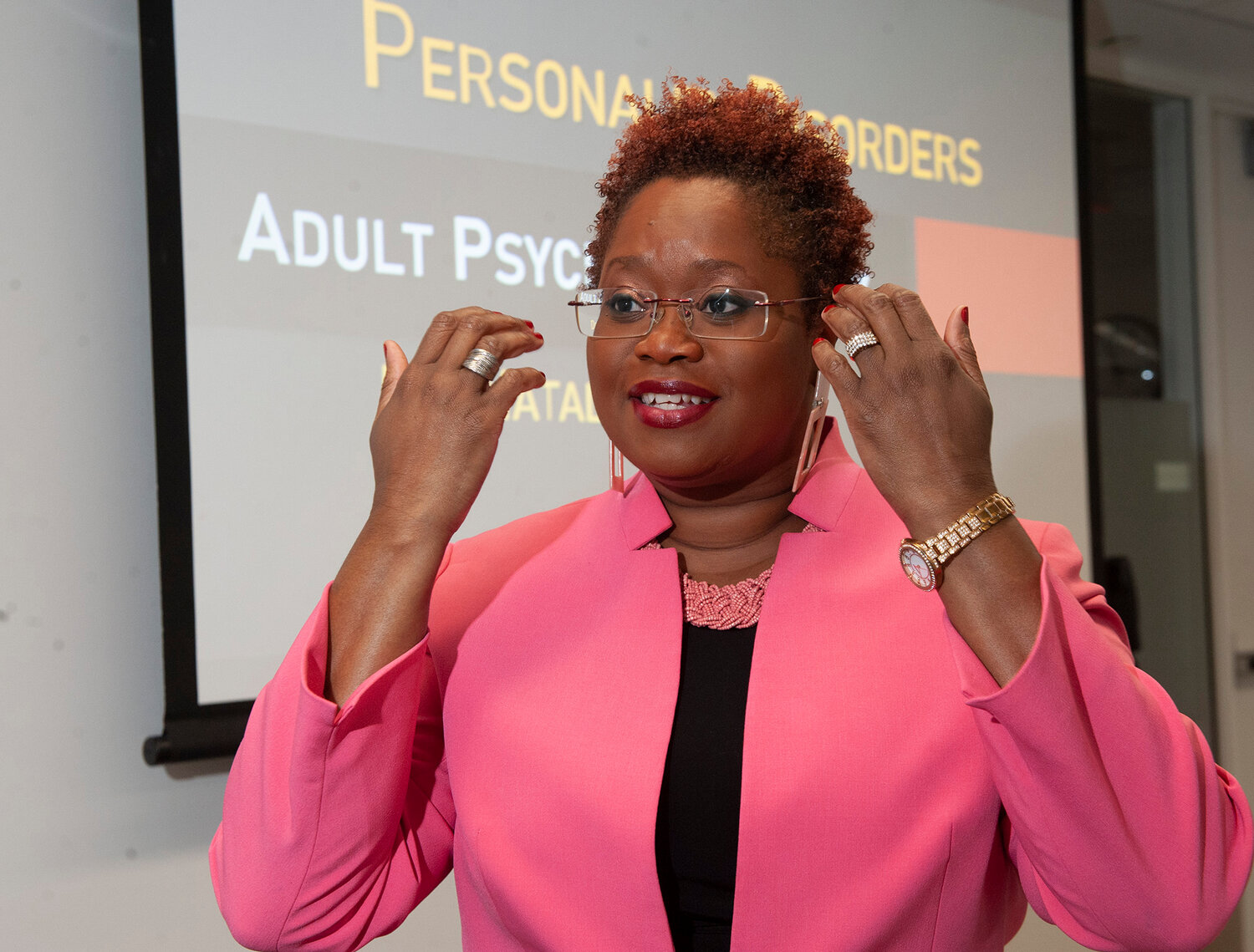Daughter of Valley Stream parents is a top educator
Over the past 15 years, this Guyanese immigrant and the daughter of Valley Stream parents has cemented herself as a leading voice on the unique struggles and challenges racial and ethnic minorities face in accessing adequate and culturally appropriate mental health services.
Natalie Cort’s prolific behavioral research has helped shine a spotlight on the nuances and complexities of racial and ethnic differences in youth mental health practices, child abuse, high-risk sexual behaviors, and depression treatment outcomes.
In shifting from researcher to educator, her acclaimed reputation has only grown greater at William James College in Massachusetts. There, as an associate professor in the Clinical Psychology Department and co-director of the Center for Multicultural & Global Mental Health, she has earned the respect and affection of students both as an involved professor and mentor. Her colleagues consider her a trailblazing force, tasked to develop programs to attract and prepare both faculty members and students from underrepresented backgrounds for careers in higher education.
Recently, the Massachusetts Psychological Association named her the 2023 Teacher of the Year. The high honor was a culmination of her impactful decade-long career at William James.
“She’s created a space for students from traditionally underrepresented backgrounds in higher education in general, and the psychology field in particular, to be seen, heard, validated, and understood,” said Gina Benjamin, Associate Director of Clinical and Community Service. “She’s consistently ensuring our students get funding and lessen their financial burden because getting student loans for PhD programs is expensive and you can get into so much debt.”
Benjamin further noted that the financial shock students face when transitioning to college can be overwhelming, forced to grip with how to pay for transportation, housing, school materials, and food.
Minority students also wrestle with a more elusive problem: isolation.
“Historically, people who go into the mental health field have not been people from minoritized backgrounds such as immigrants, older adults, veterans, people from the LBTQ community,” said Shani Turner, Assistant Professor at the Clinical Psychology Department. “They’re entering a space that historically overlooked them for a variety of factors. Dr. Cort not only looks at the academic work of those students but also creates an environment where they feel safe to talk about different challenges that they’ve experienced in academia, bringing their whole selves into that experience, and having this sense of community and mutual validation among one another.”
“It’s been really necessary and important to ensure that my students feel a sense of belonging and feel championed, to provide them with a secure base where they know that we are fully invested in them as human beings,” said Cort.
While it was difficult for her to make a career pivot away from the University of Rochester where for years, she’s toiled to devise diagnostic practices that are racially and culturally appropriate for patients, she’s found a new calling in training and teaching future diagnosticians in accurately diagnosing patients to prevent unequal gaps in adequate care.
“That’s my underlying passion for teaching, and I’ve been blessed by the reciprocity the students and colleagues have given me,” said Cort. “It’s everything.”






